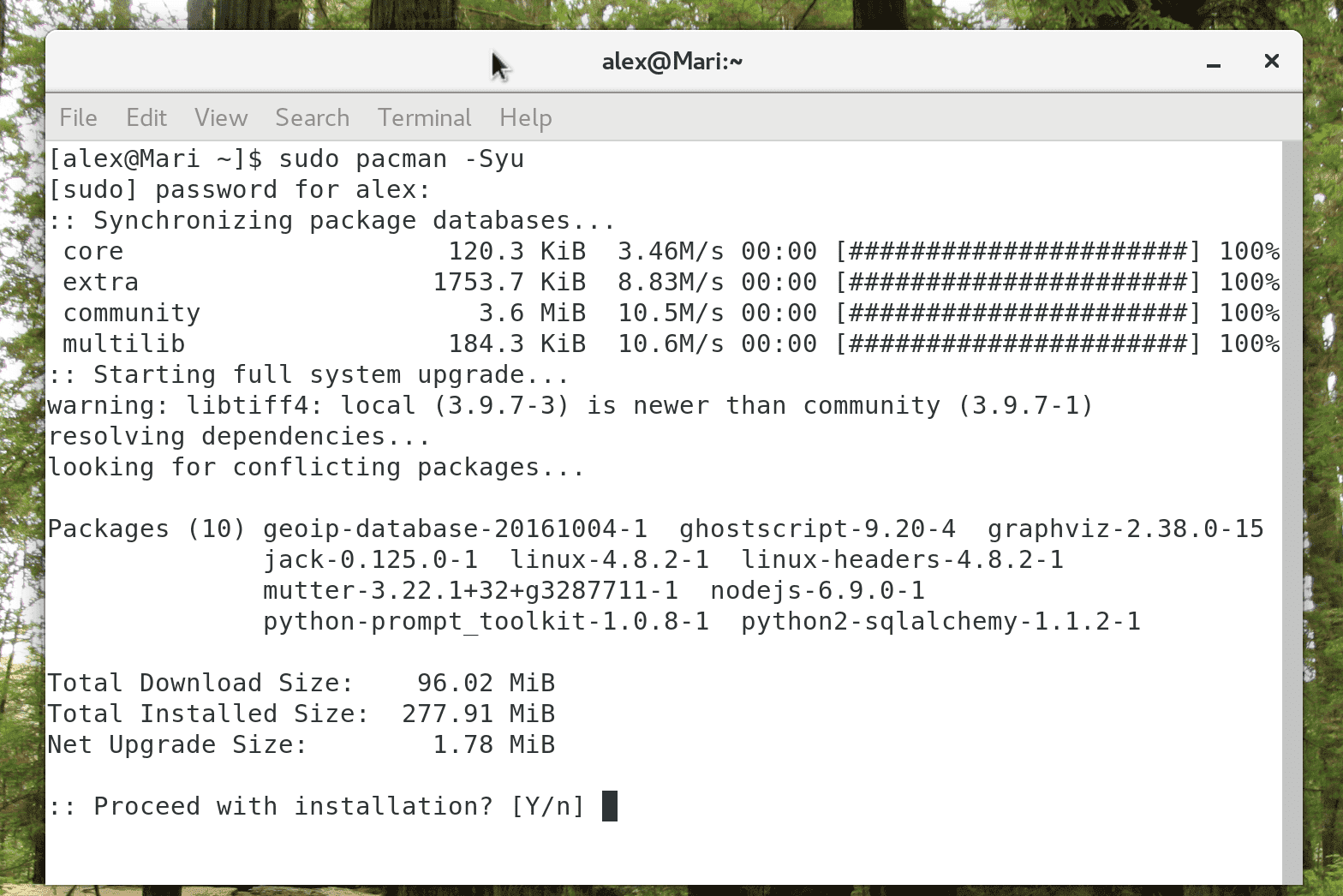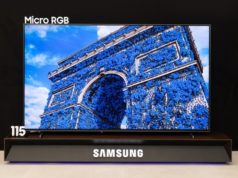The are advantages to breaking from the tyranny of version numbers.
There are a lot of reasons I recommend Ubuntu to Linux newbies. It’s well supported, reasonably stable, and easy to use. But I prefer to roll with Arch Linux myself. It has several compelling attributes, but one of its biggest pluses is that Arch is a rolling-release distribution.
What?
If you’re using Linux for the first time, there’s a pretty good chance your OS is what’s called a “versioned release” distribution. Ubuntu, Fedora, Debian, and Mint all release numbered versions of their respective operating systems. By contrast, a rolling-release distribution eschews versions altogether. Here are a few of the things you can expect from a rolling release.
1. All the latest software without the compiling
For people who want to be as close to the bleeding edge as possible, this is a huge advantage. It’s the Linux equivalent of owning a Nexus phone: You get the latest and greatest features as soon as they’re ready.
There’s just one big problem: Sometimes this can break things. If program A relies on a specific output, path, or version of program B, any unexpected changes to program B can cause program A to fail. Rolling releases often leave the resolution of such dependency issues up to the user. This is why performing full-system upgrades (e.g. using sudo pacman -Syu in Arch Linux) can be risky in rolling releases.

A system upgrade using “sudo pacman -Syu” in Arch Linux.
Versioned releases, however, try to release packages in a way that they won’t cause breakage. The packages offered through the Ubuntu official repositories are more or less guaranteed to result in a functioning system in Ubuntu’s LTS versions. This stability is one reason why many businesses and individuals that can’t afford downtime from a bad upgrade may opt for a versioned distribution like Ubuntu or Debian when running a server.
2. You’ll get support for newer hardware faster
If there’s one thing Linux does well, it’s old hardware. Since Linux doesn’t always get priority among hardware manufacturers when it comes to driver support, people have to wait weeks or months for a kernel or module that adds support for their hardware. This can be especially true for laptops.
Being able to install the latest kernel as it becomes available upstream is one of the advantages of a rolling release.
3. There are no prompts for version upgrades
If you’ve used Windows 7 or 8, you’ve no doubt seen the prompts to upgrade to Windows 10. Similarly, anyone who’s still using Ubuntu 14.04 started getting prompted to upgrade to Ubuntu 16.04 in April. While an OS upgrade in Linux isn’t as ornery or intrusive as it is in Windows, it can still be a major pain.
During a system upgrade in Ubuntu, the new system has to be downloaded to replace the one you currently have. The upgrade will try to upgrade every package on your system with one for the new version of Ubuntu. This means more time spent downloading packages for software you already have, just to get the new features of the OS.
With a rolling-release distribution, this never happens. Sure, you’ll want to upgrade your packages regularly using your package manager, but if you update your PC a couple times per week, you generally won’t be faced with downloading 2GB of packages at a time. For those with slower Internet connections, this can be a big plus.
4. Say goodbye to packages made for a specific OS version
One big advantage to running with Ubuntu is the fact that .deb packages are everywhere. If you want to download a package for Linux, there’a good chance you’ll get a link to a .deb (along with a .rpm). However, some packages are specific to certain versions of Ubuntu. While this is less common now, it’s a non-issue with rolling-releases, since there are no versions to dictate what packages you can install.
The downside, if you can call it that, is that you’ll likely have to install the package from a repository package. Since the repository is always up-to-date, there’s no concern there.
5. Have your source and compile it too
If you don’t mind installing some programs from source, rolling releases have you covered there. Distributions based on Arch Linux (like Manjaro) can make use of the Arch User Repository (or AUR) which is a community-supplied repository of scripts that can download source code for you. The Arch Build System makes it easy to turn that source code into a compiled package, which you can install like any other.
While talking about source code, I should mention Gentoo Linux. Gentoo opts to install all of its packages from source. (This is why I like to say Arch is like Gentoo but with binaries.) While you can keep an up-to-date system with Gentoo, an upgrade will require the extra time to compile the binaries for each package.
Versioned releases can have the latest packages too if the user decides to install from source (which means downloading the source code and compiling it locally). Since this takes time (and oftentimes configuration and debugging), it can be undesirable for newbies and experienced users alike who just want a laptop that works.
When choosing between a versioned distro or a rolling one, I always advise people to consider their own needs. If having the latest and greatest that Linux has to offer is important to you, a rolling release is probably your ideal solution. But if you’re someone who needs a safe and stable system for business or work, a versioned release distribution like Ubuntu will likely be the better choice.







